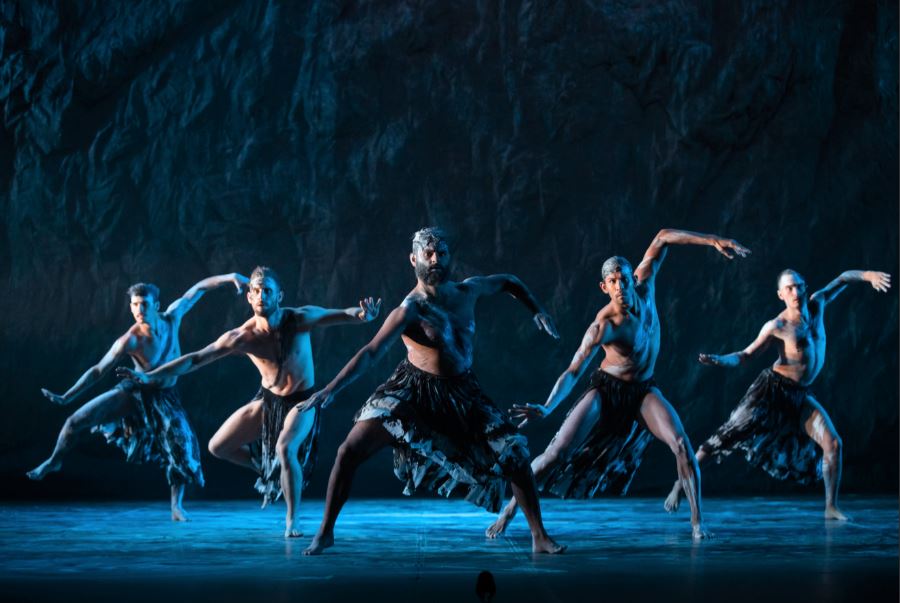
AusStage, the world-leading digital humanities platform preserving and showcasing the history of Australian live performance, has been welcomed to the prestigious UNESCO Memory of the World register.
Hosted by Flinders University with federal funding, AusStage is now a model being replicated around the world – including the Victoria & Albert Museum-led UKStage and IbsenStage (University of Oslo).
The UNESCO Australian Memory of the World program honours documentary heritage of significance in Australia and around the world, and advocates for its preservation.
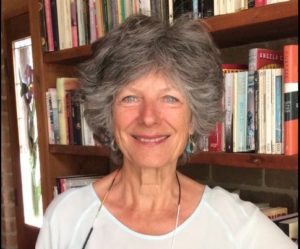
The registration follows a significant Australian Government funding boost for the database last year in the form of two major Australian Research Council (ARC) Linkage Infrastructure, Equipment and Facilities (LIEF) scheme grants for further AusStage development – led respectively by chief investigators at Flinders University and the University of Melbourne, with multiple partners around Australia.
Flinders chief investigator, AusStage co-founder Emerita Professor Julie Holledge, says the recognition by UNESCO is “a crucial reminder of the importance of such artistic activity … showing the interconnected networks of people, places and organisations over the entire history of Australia’s written documentation, including evidence of indigenous historical performance sites before the First Fleet’s arrival in 1788”.
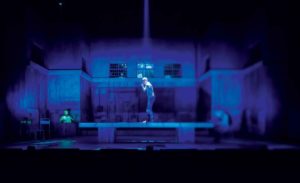
Along with information on 117,000 productions in 240 genres, performed in 11,300 venues and performance sites, involving 17,650 organisations and 166,900 people, it also holds 71,500 associated resources, ranging from articles to menus, programs to costumes, 13,900 which have links to fully digitised content.
“The extensive database provides an unparalleled catalogue of cultural heritage in Australia: it enables researchers and members of the public to explore the evolving patterns in live performance,” Professor Holledge says. “A database is an ideal way to retain the rich history of performance in Australia.”
AusStage covers everything from plays, musicals, burlesque, dance and corroboree, to circus performances and performance poetry – to name just a few. It is regularly accessed by users around the world.
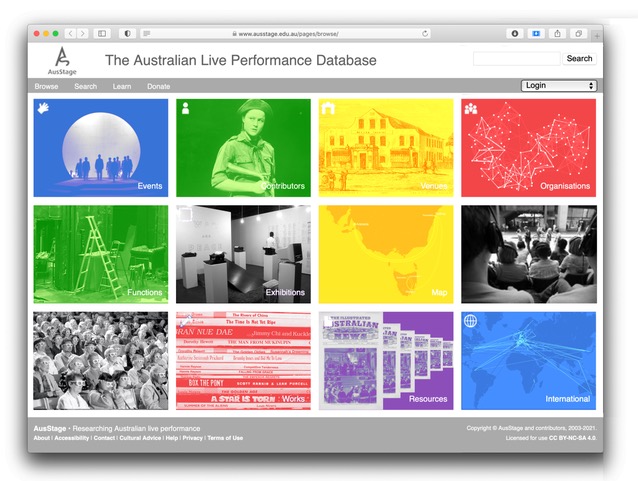
For the Adelaide Festival and Fringe alone, the database has recorded 3418 Fringe shows and 1036 Festival shows (between 1960 – 2021).
AusStage users include academic researchers, performers and practitioners, students, government representatives, and people from the Galleries, Libraries, Archives and Museums sector (GLAM). AusStage is managed by a consortium of 27 universities, six industry partners and members of the GLAM sector in Australia and abroad.
The database is more than simply a registry of events. Among other things, it has completed virtual reality (VR) reconstructions of six lost Australian theatres – including the colonial Queen’s Theatre in Adelaide (1841), Victoria Theatre in Newcastle (1891) and Mill Theatre in Geelong.
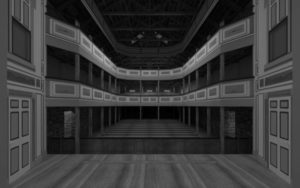
AusStage executive officer Ms Jenny Fewster says the Visualising Lost Theatres Project, led by Professor Holledge and University of Queensland expert Professor Joanne Tompkins, will expand virtual reality capabilities and a gamified approach to immerse viewers in interactive experiences based on the original sites.
“The room-scale VR locomotion with six-degrees of freedom relies on a ‘teleport-style’ method to move around the virtual spaces, explore the stalls, dress circle, upper gallery, foyers and stage,” Ms Fewster says at Flinders University.
“The new ‘auralisation’ feature will allow researchers to experience the acoustics of the theatres from different positions and achieve a greater sense of immersion through a holistic approach that mixes the visual and acoustic aspects.”
In addition, the LIEF Australian Cultural Data Engine project will facilitate robust, comparative and innovative analysis of the cultural sector by combining the rich data resources – for example by mapping demographic, employment, touring and funding, to determine cultural policy, creative and governance outcomes.
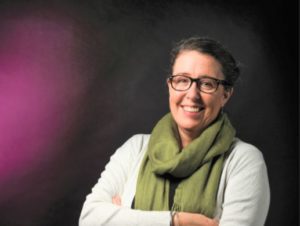
“There are performances taking place in this country that will be forgotten forever, because there’s nothing left behind except for maybe somebody’s memory,” Ms Fewster says. “So recording what happens in the field of performance is really important otherwise it can simply be lost forever.”
“AusStage is a unique national resource. It reflects our history and our passions as a nation, making available information on 250,000+ events, artists and arts organisations that define our collective story,” says Professor Julian Meyrick, who is a co-investigator in the $566,523 AusStage LIEF 7 (LE210100007).
Further development of the world’s oldest and most extensive national dataset on live performance, the new projects will benefit Australia by reinforcing AusStage’s position as an international leader in the provision of digital research infrastructure. These innovations will maximise research arising from the global flow of data now accessible following the adoption of the AusStage schema by Norway, the UK, and potentially, China.
Professor Holledge will join chief investigator Professor Rachel Fensham, from The University of Melbourne, on the $440,000 ‘Australian Cultural Data Engine for Research, Industry and Government’ LIEF project (LE210100021). The new open software engineering facility will interacts with leading existing cultural databases in architecture, visual and performing arts, humanities, and heritage to build a bridge to information and social sciences.
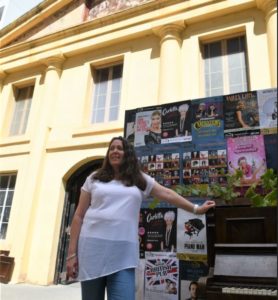
The UNESCO Australian Memory of the World Committee has welcomed 10 new items and collections of documentary heritage to the UNESCO Australian Memory of the World Register. They are:
- AusStage: The Australian Live Performance Database
- The diaries, photographs and records of C.E.W. Bean, Australian War Memorial and the State Library of New South Wales
- Estonian Oral Histories 1952-2020, Estonian Archives in Australia
- J.C. Williamson Distributed Collection, Performing Arts Heritage Network
- Johnstone Gallery Archive 1948-c1992 and Arthur Davenport Photographs 1955-1992, State Library of Queensland
- Kaurna Children’s Letters, University Library, University of Adelaide
- Log of HMS Bounty (William Bligh), State Library of New South Wales
- Papers of Jessie Street, National Library of Australia
- Settlers’ Muster Book, 1800, New South Wales Parliamentary Library
- Western Desert Verbal Arts Collection, Ngaanyatjarra Council (Aboriginal Corporation) on behalf of the Ngaanyatjarra people; ARC Centre of Excellence for the Dynamics of Language, ANU

